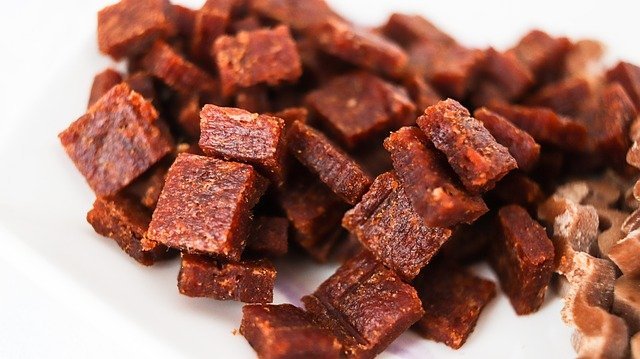
Why You Shouldn’t Worry About Animal Byproducts In Your Pet’s Food
During my time as a veterinary general practitioner I have spent a lot of time talking to my clients about their pet’s nutrition. Although these conversations are typically about proper feeding amounts, I have noticed some confusion over the term animal-by-product. Many owners have a stigma against buying pet food with animal by-products in their pet’s food. This stigma isn’t rooted in science. Instead, it’s the product of savvy marketing hype combined with the yuck factor.
What is an “Animal Byproduct?”
Let us first define the term animal-by-product as given by the Association of American Feed Control Officials:
“…the non-rendered, clean parts, other than meat derived from slaughtered mammals. It includes, but not limited to lung, spleen, kidneys, brain, liver, blood, bone, partially defatted low temperature fatty tissue, and stomachs and intestines freed of their contents. It does not include hair, horns, teeth, and hoofs.”
The Yuck Factor
I can guarantee that a large proportion of people reading that statement thought to themselves “I wouldn’t feed my animal those things!” That exact feeling and emotional response those people have is how to describe “The Yuck Factor”. We often forget that if you take any of these ingredients and break them down into their protein, carbohydrate, and fat compositions you are left with highly digestible and rich nutrition. Most of these organs have higher nutritional values than muscle—which is all meat!
Do you think any wild animal has discarded these organs from a carcass because they are icky and gross? Our own revulsion towards these organs probably comes from human culture, which has longstanding stigmas that overrule our mammalian instincts..
How Marketing Profits From Disgust
Certain dog food manufacturers have taken advantage of the “Yuck Factor” to create niche markets for dog food that advertise that there are no by-products contained.
Consider how many Marylanders enjoy their breakfast with a side of scrapple—which is a meat by-product by definition. Those that do enjoy frying up a hot skilled of scrapple are probably easier to convince the benefits of meat by-products than those who are turned off by it.
As for the scrapple-shaming audience, I hope I have at least broadened your opinion that animal by-products are completely fine for our pets’ consumption.
-Dr. Ryan Ashkon Beizavi
EMRVC is here to help with all your pet nutrition questions. Contact us today to set up an appointment!
Essex Middle River Veterinary Center provides medical and surgical care for cats and dogs at our animal hospital and veterinary clinic in Essex, Maryland, just outside of Baltimore. Our services include preventive wellness care exams, vaccines, spays/neuters, and a variety of specialized care. Our state-of-the-art veterinary offices are conveniently located near I-695 where we see pets from Towson, Honeygo, White Marsh, and other neighboring Baltimore areas.
